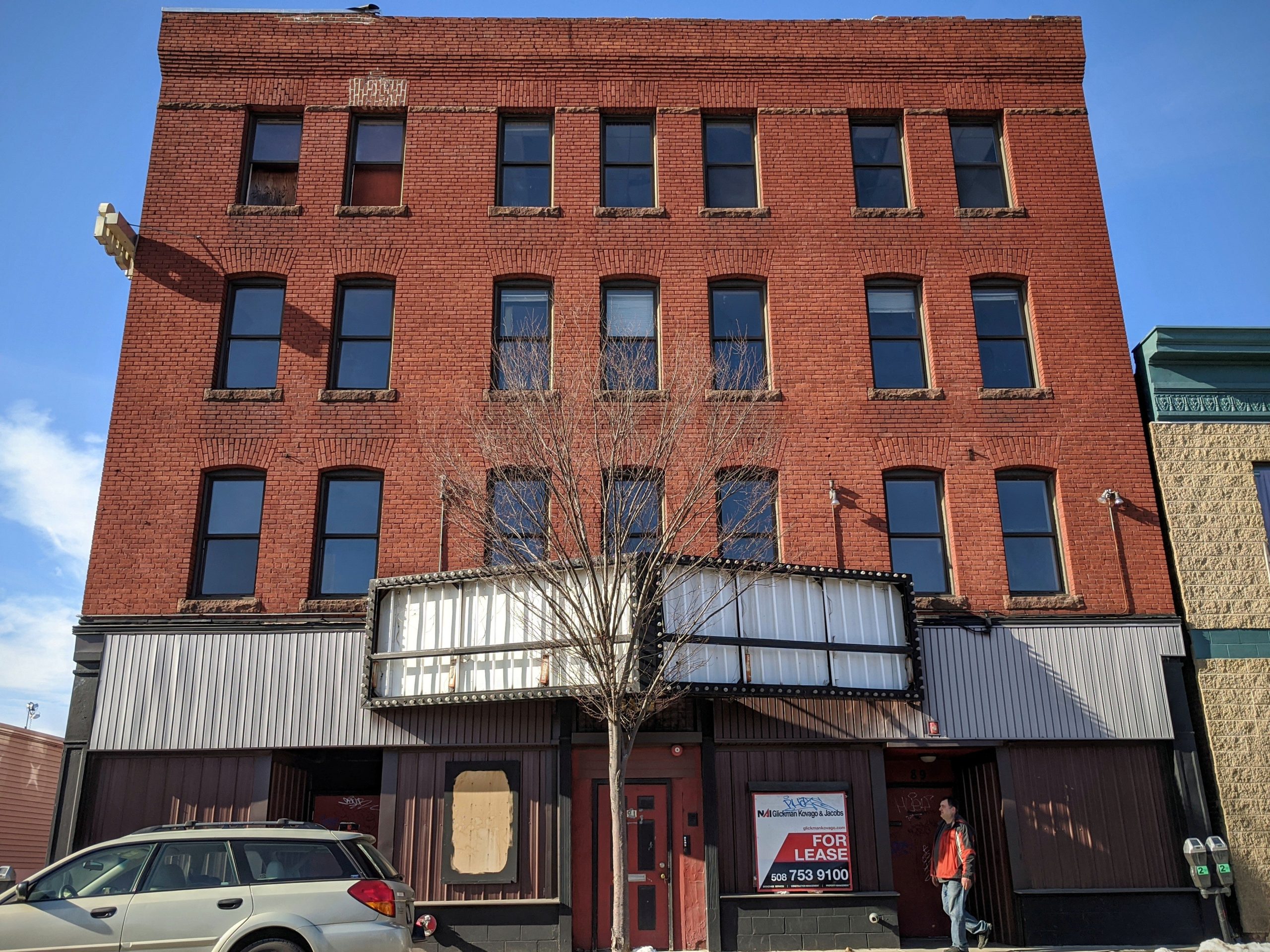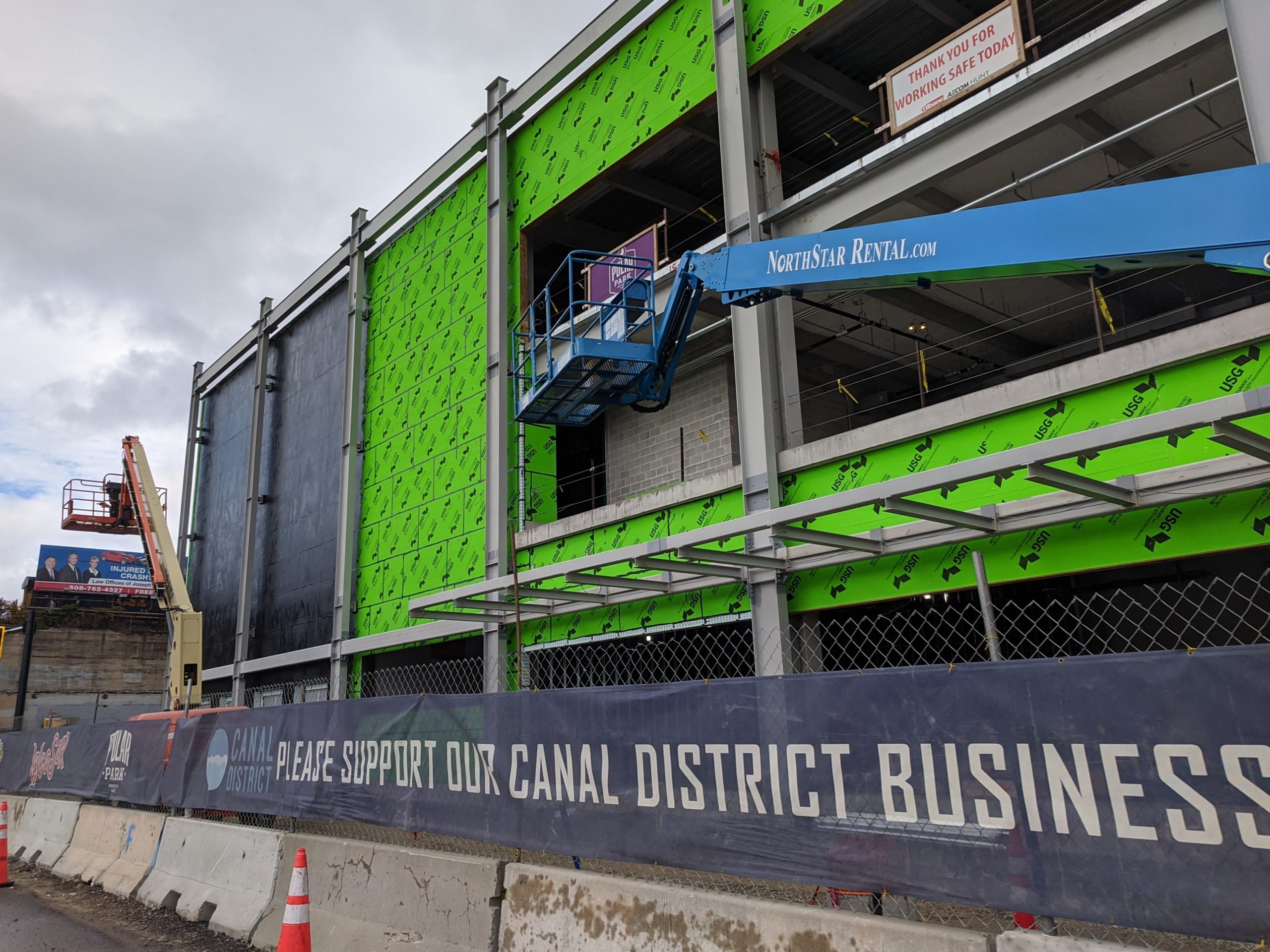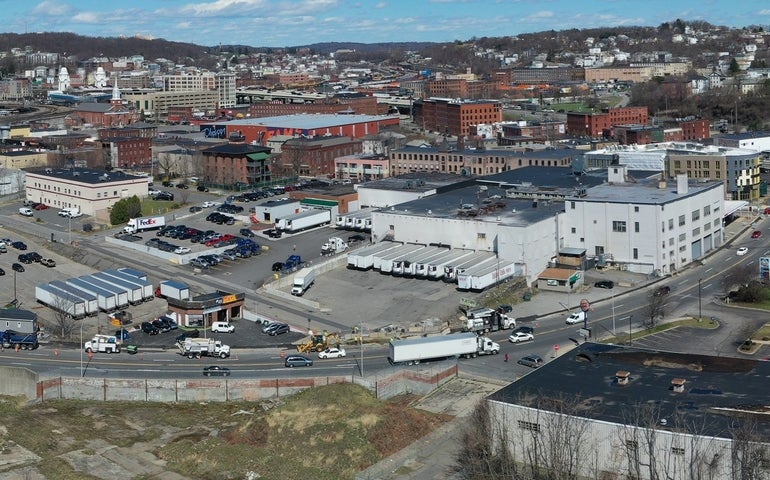In a press conference with city officials Thursday afternoon, development firm Boston Capital announced plans for a retail and housing development at the site of departing manufacturer Table Talk Pies next to the $132-million Polar Park public baseball stadium in Worcester’s Canal District.
At the same event, Worcester developer Churchill James detailed plans for its previously announced bowling alley and residential building about two blocks away on Green Street.
The two projects’ combined investments are estimated to be nearly $100 million, according to the city.
“Without the investment of the ballpark, we probably would not have the level of investment” discussed Thursday, City Manager Edward Augustus said at the press conference.
Both developments were first mentioned by city officials in September. Neither project has financing in place yet.
The Boston Capital development will include primarily housing, as well as retail, said Richard Mazzochi, the Boston firm’s vice president for acquisitons. A first phase will cost $36 million and include affordable housing, he said. Construction could start in 2022.
The firm has a purchase-and-sale agreement with Table Talk for the site, said Mazzochi, who did not divulge the price.

Table Talk’s departure from its longtime Kelley Square site next to the ballpark has been foreshadowed since a few months before construction on the ballpark began. The piemaker first said in April 2019 keeping its operations going with the stadium next door might not be practical because of logistical challenges.
Table Talk began construction last summer on a 135,000-square-foot facility off Gardner Street a little over a mile south of Kelley Square, near where it opened a smaller cold-storage facility a year prior. The $22-million Gardner Street facility is slated to open in June at a former Crompton & Knowles mill.
New development including the Table Talk redevelopment and bowling alley are part of what city officials have said will contribute so much new tax revenue to the city that the city-owned baseball stadium will pay for itself and then some. The city is paying for the bulk of the $132-million ballpark, which is slated to open for Worcester Red Sox games as soon as April, depending on whether Minor League Baseball holds its season on a typical schedule in light of the coronavirus pandemic.
Sports economists hold a consensus such public spending is not a wise investment and sports facilities don’t pay for themselves through new development, due largely to construction that would have taken place anyway or spending that was simply shifted from other nearby areas.
[Related: Economic Forecast: WooSox face an uncertain year]
City officials have been steadfast that the project will indeed be self-financing through the other development, including a special taxing district set up for blocks around the ballpark to devote new tax revenue to paying off public bonds for the ballpark’s construction.
Bowling alley
The bowling alley development is slated to include the site of the former Cove Music Hall and adjacent properties on Green Street, with construction facing both the street and the ballpark, which had long been a windswept parking lot.
Churchill James, a Worcester firm led by Thomas Keane and Harry DiLeo has been under agreement to buy three parcels from the city — at 85 Green St., 2 Plymouth St., and 5, 7 and 8 Gold St. — for $3 million. The same businessmen paid $900,000 for the defunct concert hall at 89 Green St. in a deal closed in December.
The ballpark was instrumental in convincing Churchill James’ investors that putting money into a Worcester development was worthwhile, Keane said. Construction is eyed for early 2022, he said.
At the press conference, Timothy Murray, the president and CEO of the Worcester Regional Chamber of Commerce, praised the presence of the Worcester Red Sox and the ballpark to spurring development.
“The fact that they picked Worcester piqued everyone’s curiosity,” Murray said of what he described as the team helping recruiting efforts for new development in the city.
The city has been generous in giving incentives for much of the new development.

Last February, the Worcester City Council approved four new tax breaks for a larger mixed-use development planned by Madison Properties that’s been proposed for just outside the stadium, mostly on the other side of Madison Street but also a planned office building beyond the ballpark’s left field. Those tax breaks cover the office building, a planned hotel, two residential buildings and a laboratory building. They add to another tax break previously approved, as well as the city agreeing to waive $2.25 million in permitting fees for the project. In exchange, Madison gave the city the land for the ballpark.
Those approvals for the Madison Properties project came a few weeks after the council approved a $4.6-million tax break for Table Talk’s new Gardner Street facility.
Work has not yet begun on the Madison Properties project, whose first phase was initially supposed to open early this year, nor on a parking garage that was due to open in time for the start of games in April. Much of the industries making up the project, including offices, a hotel and retail space, have been hammered by the pandemic. In addition to the delays, some components have also been shrunk in scope.
Construction on Polar Park was delayed for seven weeks last spring during the initial wave of the pandemic, but WooSox and city officials have planned for the ballpark to open on time this spring.
The project’s initial cost was $101 million, but cost estimates rose to $132 million last January due in large part to what the city said was unexpected costs of relocating businesses that stood in the way of the stadium. To make up the difference, the city — among other measures — increased the size of the special district whose increased property taxes would pay off the bonds for the ballpark.
The city has not provided updated cost estimates in the year since.

